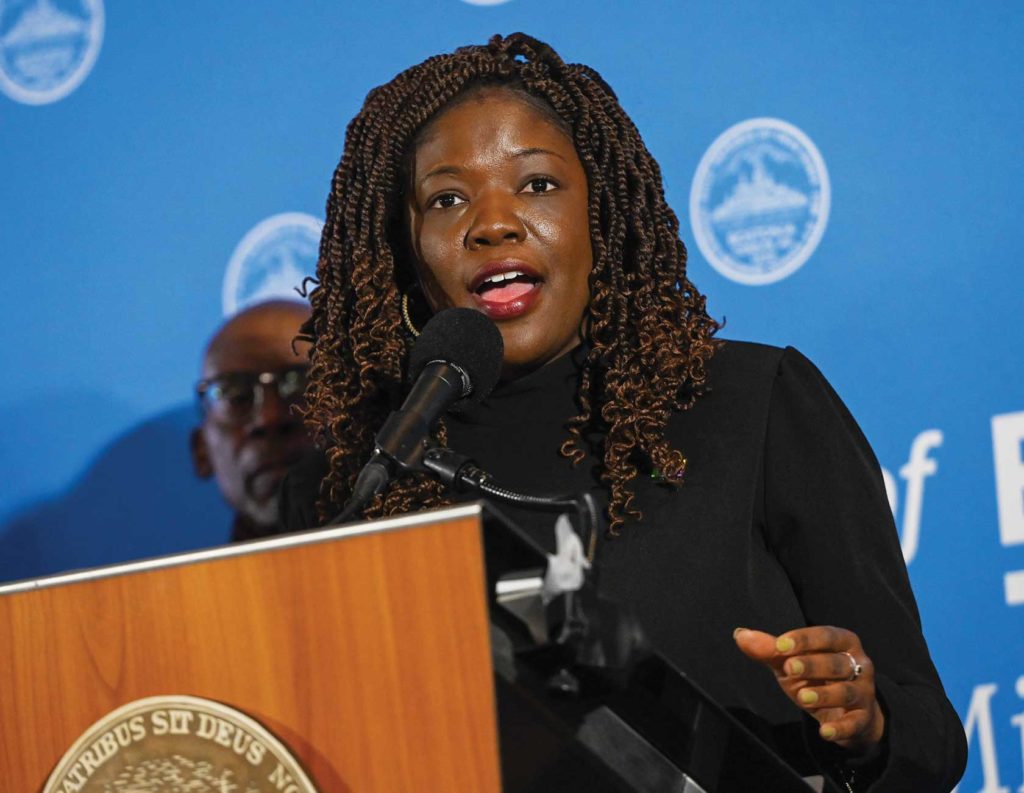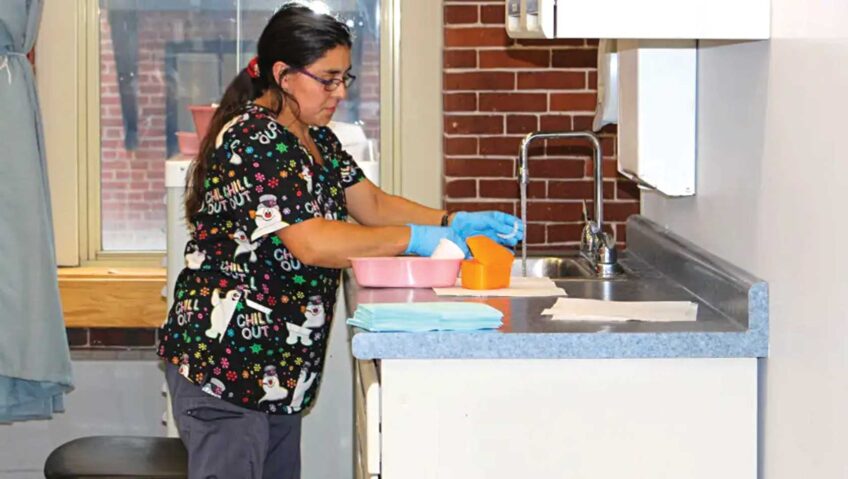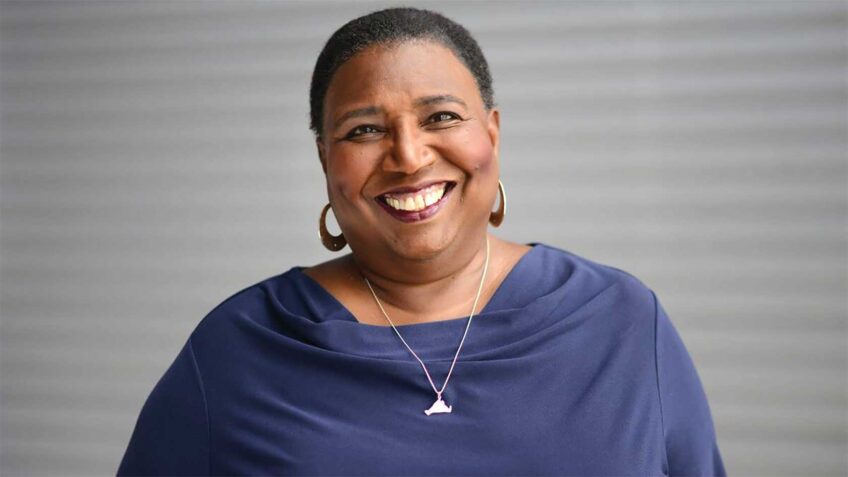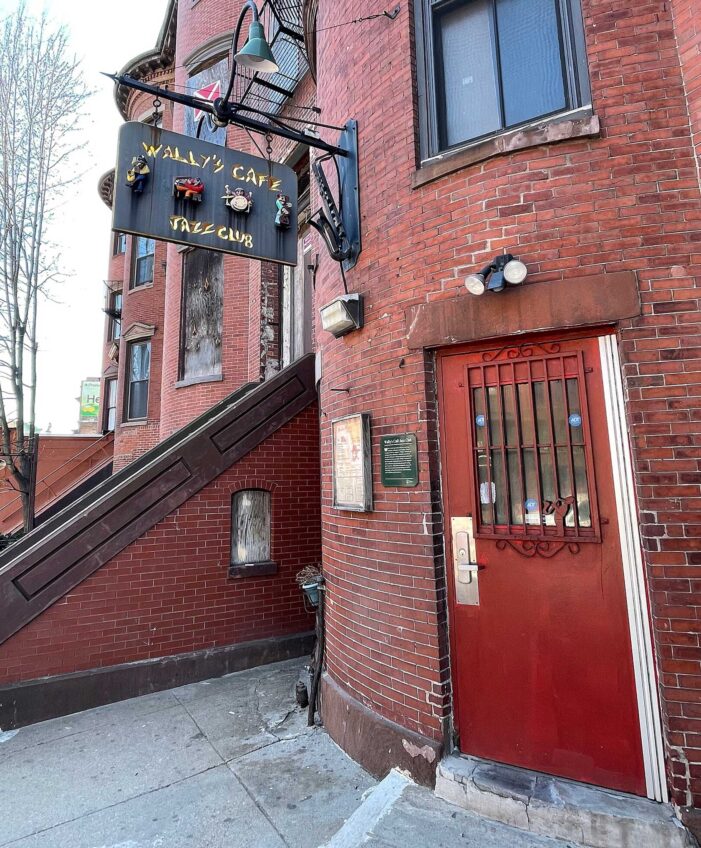
Following the announcement of a federal plan to accept 100,000 Ukrainian refugees, local leaders and organizations have voiced support for the proposed action, while also noting perceived inequities between the treatment of Ukrainian refugees in comparison with the treatment of migrants from predominantly non-white countries and hoping that the action can jumpstart change in the U.S. immigration system.
President Joe Biden announced the plan Thursday, alongside expanded sanctions against Russia and plans to provide $1 billion in food, medicine, water and other supplies to Ukraine.
Boston City Councilor Ruthzee Louijeune voiced her support for the plan but said actions in this vein shouldn’t be limited to refugees from Ukraine.
“I absolutely believe that we should be accepting the 100,000 Ukrainian refugees; that’s exactly what we should be doing in times of crisis,” Louijeune said. “We should be extending that same compassion to other migrants — to Black migrants, to Haitian migrants who find themselves at the border, unable to make their claims for asylum, which is their right under international and United States law.”
Louijeune, who is the child of Haitian immigrants, has been vocal about the Biden administration’s use of Title 42 to turn away immigrants from Haiti at the southern border of the United States. The federal action faced increased scrutiny in September, when photos of United States Customs and Border Protection agents on horseback appeared to show them using their reins as whips.
In a statement released by the Massachusetts Immigrant and Refugee Advocacy Coalition (MIRA), the organization’s executive director Elizabeth Sweet described a “glaring inequity” between treatment for refugees from white, Christian, European countries and those from other parts of the world.
“Moving forward, we must react to all crises in a racially and ethnically just, equitable manner,” Sweet said. “It is also paramount that the Biden administration further rebuild our refugee resettlement infrastructure, which is frustratingly understaffed, under-resourced, and overworked.”
In the same statement, Sweet said her organization was proud that the Biden administration is taking a “strong step forward to ease this humanitarian crisis.”
Patricia Montes, executive director of Centro Presente, a Boston organization that works to support the Latino community in Massachusetts, said that while the plan to accept Ukrainian refugees is important, she sees in it a sharp contrast.
“Obviously, we are very glad this country is going to receive refugees that are going to come. However, we also think about all the refugees — or immigrants that should be treated as refugees — people that are coming from Haiti, people that are coming from Central America and many other places, that are coming to the U.S. and Mexican border looking for international protection, but they found policies that criminalize them, detain them, put them in jail, and eventually they deport them,” Montes said. “I believe that that’s a double standard.”
Dan Gordon, the vice president of strategic communications at the National Immigration Forum, an immigration advocacy group, said he thinks the quick acceptance of 100,000 refugees from Ukraine doesn’t indicate a double standard, but rather a disconnect from the ideals that the United States says it strives for.
“We should make sure that we are streamlining the processes that we need to streamline, get them back up and running, and make sure that when there are refugees from other parts of the world, that we are ready to accept them just like we’re ready to accept refugees from Ukraine,” Gordon said.
Immigration organizations and local leaders said they hope action around Ukrainian refugees will open up the possibility for adjustments in the U.S. immigration system.
Louijeune said that she hopes actions regarding Ukrainian migrants opens up more opportunities for migrants from other parts of the world.
“[Accepting these Ukrainian migrants is] absolutely what we should do legally and what our moral compass should lead us [to], but it should also lead us to that point when we’re talking about Black migrants, Haitian migrants, Mexican migrants, Cameroonian migrants who find themselves in this country or who find themselves making their way to this country and the doors are being slammed shut in their face,” Louijeune said.
Gordon said he hopes the plan will lead to reinvestment in the refugee resettlement system, which saw decreased admission levels and consequently decreased funding under the Trump administration.
“A lot of refugee resettlement offices had to close during the Trump administration; the funding basically dried up during that time,” Gordon said. “There were a lot of cutbacks, so Congress and the president need to make sure our resettlement agencies and infrastructure here are fully funded and get back up to speed so we can live up to our ideals.”
In a statement sent to the Banner, 32BJ SEIU Vice President Roxana Rivera said she hopes this moment can allow for consideration of other U.S. immigration policies.
“In light of all that the Ukrainian invasion is teaching us about the ravages of war and displacement of people, we hope Congress will take up our request to create a path to citizenship for those who have been here for decades with Temporary Protected Status (TPS), which was granted to recipients because of life-threatening catastrophes in their countries of origin,” Rivera said.
In the statement, Rivera described the union as a “majority-immigrant union” with members from all over the world, including Eastern Europe as well as many from Latin America.
For Gordon, this moment is also one to consider that countries don’t have to be facing war to struggle with dire circumstances that prompt migration.
“We need to make sure we also are taking the time to understand what’s happening in other countries that’s causing people to have to flee, where people are persecuted, where violence is high, so that we see people not as a problem at our border, for example, but as real people with human dignity who are just doing what’s best for them and what you and I would do if we were in the same situation,” Gordon said.
Louijeune said she thinks people might try to draw a distinction between the declared war in Ukraine and other kinds of natural or political upheaval in other places, such as Haiti, but said such a line isn’t necessary.
“We don’t have to be involved in oppression olympics,” Louijeune said. “We can say that we invite Ukrainian refugees, and we invite Haitian refugees and migrants, right? We can walk and chew gum at the same time.”






